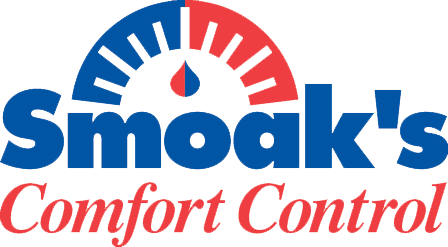Understanding Ideal Humidity for South Carolina Homes
Maintaining the ideal humidity in your South Carolina home is crucial for comfort, health, and the longevity of your property. South Carolina’s climate, characterized by warm, humid summers and mild winters, makes it essential to keep high indoor humidity levels in check. Achieving the right balance between moisture and dryness can significantly improve your quality of life and protect your home from potential damage caused by fluctuating humidity levels.
Understanding why humidity control matters is the first step toward creating a comfortable living environment. When your home’s humidity is balanced, it feels more comfortable and contributes to better indoor air quality. A well-maintained humidity level prevents health issues, conserves energy, and ensures that your HVAC system operates efficiently. By keeping your home’s humidity level in check, you can avoid the discomfort of excessively dry or humid air and the problems they cause.
Why Humidity Matters in Your Home
Humidity significantly influences outdoor temperature and your home’s overall comfort. When the air in your home is too humid, it can feel heavy and sticky, making it difficult to cool down during hot South Carolina summers. High humidity levels can also cause discomfort, as your body struggles to evaporate sweat, leading to a persistent feeling of heat and clamminess. Conversely, low humidity levels during winter can cause dry skin, respiratory problems, and an increased risk of static electricity, making your home feel less inviting.
Beyond comfort, humidity levels can impact your health and the structural integrity of your home. High humidity promotes mold growth, dust mites, and other allergens that can negatively affect indoor air quality. These can lead to respiratory problems, especially in individuals with asthma or allergies. On the other hand, low humidity can dry out your home’s materials, causing wood floors to crack and furniture to deteriorate over time. Maintaining dry indoor air at the ideal humidity level helps preserve your health and your home’s structure.
The Ideal Humidity Levels: What Experts Recommend
Experts recommend maintaining indoor humidity between 30% and 50% for optimal comfort and health. This range is significant in South Carolina, where high outdoor humidity can easily infiltrate your home. Keeping your indoor humidity within this range helps prevent the growth of mold and dust mites, which thrive in environments with cold air and higher moisture levels. It also helps avoid the discomfort associated with dry air, such as irritated skin and respiratory issues.
In addition to enhancing comfort and health, maintaining the ideal humidity level can protect your home’s materials. Wood floors, for example, can warp or crack if overexposed moisture due to fluctuating humidity levels. Keeping your home’s humidity within the recommended range ensures that materials like wood and drywall remain stable, reducing the risk of costly repairs. Achieving and maintaining this balance requires a combination of proper HVAC system usage and, in some cases, additional humidity control measures.
How Humidity Affects HVAC Systems
Humidity levels directly impact the efficiency of your HVAC system. When humidity is too high, your air conditioner works harder to remove excess moisture from the air, leading to increased energy consumption and wear on the system. Conversely, low humidity can cause dry air, resulting in discomfort and the need to increase the heating to maintain comfort. Maintaining optimal humidity levels ensures your HVAC system operates efficiently, without excessive moisture, and provides comfort and energy savings.
Challenges of Maintaining Ideal Humidity in Charleston, SC
Charleston‘s climate poses unique challenges in maintaining ideal humidity levels. The area’s warm air and high relative humidity, even during the summer, can make it challenging to keep indoor humidity in check. Also, coastal areas are prone to high humidity, which can lead to indoor excess moisture. It’s essential to be aware of these local climate factors and proactively manage your home’s humidity.
Signs Your Home’s Humidity is Too High or Too Low
Recognizing the signs that your home’s humidity is out of balance is essential. High humidity levels can cause condensation on windows, mold growth, and a musty odor, indicating excess moisture. Low humidity, or too little moisture, on the other hand, can lead to dry air, resulting in dry skin, static electricity, and cracking wood floors. Monitoring these signs can help you address humidity issues before they cause significant damage or discomfort.
How to Control Humidity Levels in Your Home
Controlling humidity levels in your home involves a combination of proper HVAC system maintenance and additional tools like dehumidifiers and humidifiers. Regular HVAC system maintenance ensures that your air conditioner and heating system operate efficiently, helping regulate indoor humidity levels. For homes with persistent humidity issues, a whole-house humidifier or dehumidifier can provide additional control over indoor relative humidity year-round, ensuring a balanced indoor environment.
The Role of HVAC Systems in Managing Humidity
Your HVAC system plays a critical role in managing humidity levels in your home. A well-maintained HVAC system can effectively remove excess moisture during the humid summer months and add moisture when the air is too dry in the winter. Ensuring that your HVAC system is regularly serviced and functioning properly is crucial to maintaining your home’s ideal temperature and humidity, protecting your health and your property.
Common Mistakes to Avoid When Managing Home Humidity
Managing home humidity can be tricky, and there are common mistakes to avoid. Overusing humidifiers can lead to excessively high humidity levels, creating a breeding ground for mold and dust mites. Neglecting HVAC maintenance can also result in an inefficient air conditioning system that struggles to maintain proper humidity levels. It’s essential to strike a balance and use your HVAC system and humidity control devices correctly.
Another mistake is neglecting HVAC system maintenance, which is crucial for managing ideal indoor humidity. A poorly maintained system can need help to remove excess moisture from the air or add the necessary humidity during winter. Regular maintenance, including cleaning and inspections, ensures that your HVAC system operates efficiently, helping maintain balanced humidity levels and preventing issues related to high and low humidity.
Achieving & Maintaining the Ideal Humidity in Your Home
Achieving and maintaining the ideal humidity in your South Carolina home is essential for your comfort, health, and property preservation. You can create a comfortable and healthy living environment by understanding the importance of humidity control, recognizing the signs of imbalanced or ideal humidity in the home itself, and using your HVAC system effectively. Regular maintenance and the strategic use of humidifiers or dehumidifiers will help you maintain optimal humidity levels, ensuring that your home remains a sanctuary from the extremes of the South Carolina climate. Contact us for more information or to request an appointment today!

